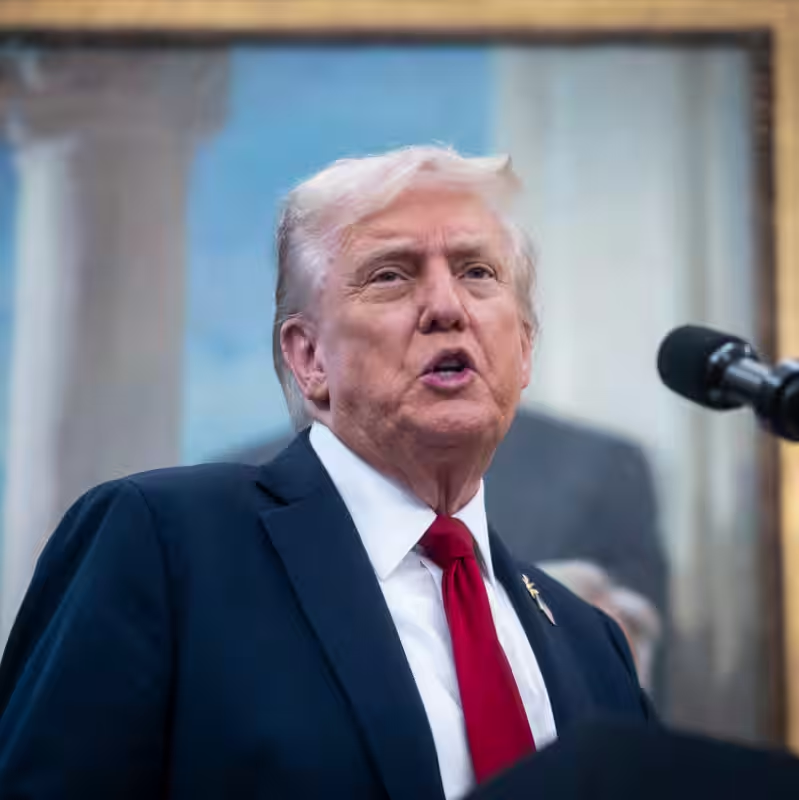Table of Contents
- The Back Pay Controversy Explained
- The 2019 Law Trump Himself Signed
- White House’s Stated Rationale
- Fierce Pushback from Unions and Congress
- How Past Shutdowns Handled Back Pay
- What Federal Workers Could Face
- Sources
The Back Pay Controversy Explained
In a move that has stunned federal employees and lawmakers alike, the Trump administration is exploring whether to withhold back pay from workers furloughed during a potential government shutdown—a stark reversal from past practice and, critics say, a direct violation of a law enacted during Trump’s own first term.
While no formal policy has been announced, internal discussions at the Office of Management and Budget (OMB) and the Department of Justice suggest the White House is weighing legal arguments that could justify denying retroactive wages to the roughly 2 million federal employees affected by a lapse in funding.
The 2019 Law Trump Himself Signed
The controversy centers on the Government Employee Fair Treatment Act of 2019—a bipartisan bill signed into law by President Trump in January 2019, during the longest government shutdown in U.S. history.
That law guarantees two things:
- All furloughed federal employees receive back pay once the shutdown ends.
- Employees deemed “essential” and required to work without pay during a shutdown must also be compensated retroactively.
At the time, Trump called the bill “a good thing for our great federal workers.” Now, his administration appears to be testing whether the law can be circumvented or reinterpreted.
White House’s Stated Rationale
According to officials familiar with internal deliberations, the administration is considering arguing that the 2019 law only applies to past shutdowns—not future ones—unless Congress explicitly reauthorizes it. Others suggest the White House may claim “budget neutrality” concerns or invoke emergency powers to delay or deny payments.
“They’re looking for any legal foothold,” said a former OMB attorney who requested anonymity. “But the statute is clear: it applies to ‘any lapse in appropriations’—past, present, or future.”
Fierce Pushback from Unions and Congress
Union leaders and Democratic lawmakers have condemned the move as both legally dubious and morally indefensible.
“This isn’t just about money—it’s about dignity,” said Everett Kelley, president of the American Federation of Government Employees (AFGE). “These are TSA agents, border patrol officers, IRS staff—people who keep America running. To punish them for a political fight in Congress is unconscionable.”
Senator Chris Van Hollen (D-Md.) called the proposal “a betrayal of the very workers this administration claims to support.” He added: “The law is unambiguous. The president signed it. Now he can’t just ignore it when it’s inconvenient.”
How Past Shutdowns Handled Back Pay
| Shutdown Year | Duration | Back Pay Guaranteed? |
|---|---|---|
| 2018–2019 | 35 days | Yes, via 2019 law signed by Trump |
| 2013 | 16 days | Yes, retroactively approved by Congress |
| 1995–1996 | 21 days (combined) | Yes, after public outcry |
Historically, every major shutdown has ended with back pay—often with bipartisan support. The 2019 law was meant to eliminate uncertainty and prevent future hardship.
What Federal Workers Could Face
If the administration succeeds, hundreds of thousands of federal employees could face weeks or months without income—with no guarantee of repayment. Many live paycheck to paycheck and rely on side gigs or credit cards during shutdowns.
“Last time, I had to choose between my insulin and my rent,” said Maria Lopez, a USDA employee in Texas. “Now they’re saying maybe we won’t even get paid back? That’s not governance—that’s cruelty.”
Legal experts say any attempt to deny back pay would almost certainly trigger immediate lawsuits—and likely fail in court. But the mere threat has already sowed fear and anger across the federal workforce.




